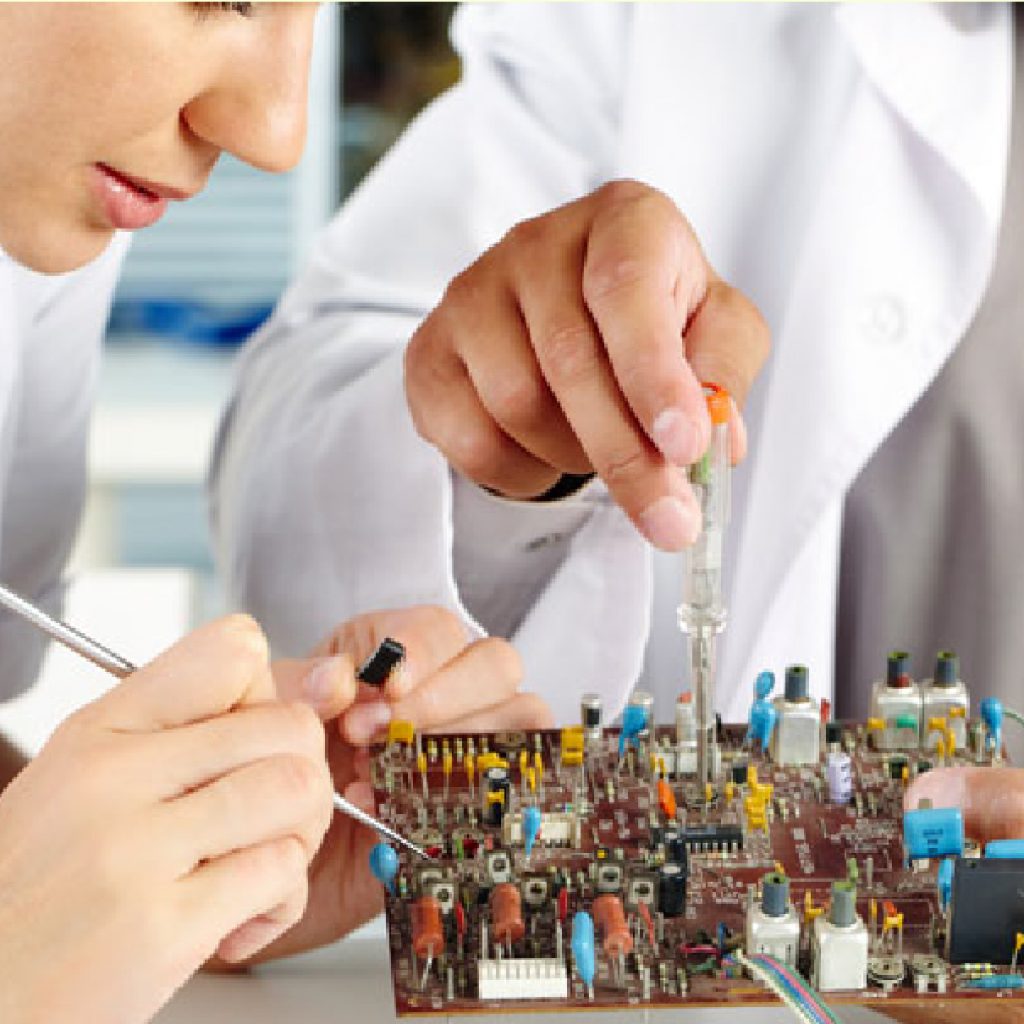Rush PCB offers several surface treatments on bare printed circuit boards (PCBs) to ensure proper electrical properties and good solderability. PCB traces and pads are made of Copper, and exposed Copper is unlikely to remain in its raw form for very long, as it tends to oxidize when it comes into contact with air—creating a surface that is non-conducting and difficult to solder.
Common Surface Treatment Processes
Although while soldering, strong flux can remove the oxide layer, such flux in turn is corrosive and difficult to remove from the board. The electronic industry, therefore, does not use strong flux, and instead prefers surface treatment of exposed Copper to prevent it from oxidizing.
- Hot Air Solder Leveling
- Electroless Nickel Plating / Immersion Gold
- Immersion Silver
- Immersion tin
- Organic Coating
Hot Air Solder Leveling (HASL)
For HASL, the process involves application of molten tin-lead solder on the surface of the PCB, and leveling it with the help of a hot compressed air edge. The solder and Copper form an intermetallic compound at the junction. This forms a 1-2 mil thick coating on the exposed Copper surfaces, preventing oxidation and providing good solderability.
Although an economical, simple, and easy to apply process, HASL is not applicable to high density boards, as it can create shorts and uneven surfaces. For boards that must conform to the RoHS requirements, Rush PCB replaces the tin-lead solder with Lead-free type.
Electroless Nickel Plating / Immersion Gold (ENIG)
In ENIG coating, the Copper surface has a thick coating of Nickel followed by a thin coating of Gold. These coatings protect the Copper during long-term use of the PCB. Additionally, they also provide very good electrical performance, especially for Lead-free soldering. As the Nickel forms a physically strong layer in between the Copper and Gold layers, it also prevents Gold from diffusing into the Copper.
Immersion Silver (IAg)
Although Immersion Silver coating is not as strong as ENIG, and does not provide a thick armor, it is able to provide good electrical performance, and good storage properties. The process is simple and fast, and when exposed to heat, pollution, and humidity, the Silver coating may lose its luster, but still maintain good solderability.
Immersion Tin (ISn)
As Tin is the basis of most types of solder, a Tin layer can match any type of soldering. Therefore, although a surface treatment with Tin shows good promise, Tin often produces whiskers and creates reliability problems during soldering.
However, Rush PCB has overcome the above problems with Tin by adding an organic additive. The additive makes the Tin layer more granular in structure, improving its thermal stability and solderability.
The Immersion Tin process forms a flat Copper-Tin intermetallic compound, which has better coplanarity as compared to what the HASLprocess has to offer. However, it is not possible to store the immersion Tin plated PCB for long.

Organic Coating
This is a very different type of coating from all the others mentioned above, as it forms a barrier between the Copper surface and air, keeping the Copper from oxidizing. As the organic coating is inexpensive and simple to apply, the electronic industry uses it widely.
So, Rush PCB improves on the regular organic coating by placing several layers on the Copper surface. Adding copper to the chemical bath improves the organic coating, and enabling the PCB to endure multiple flow soldering processes.
Other Surface Treatment Processes
Rush PCB also offers other surface treatment processes that are less popular. For instance, Electroless Nickel, Electroless Palladium, Immersion Gold (ENEPIG) plating. This is a superior surface treatment process as compared to ENIG, and the presence of the Palladium layer helps overcome the problem of Nickel migrating into the immersion Gold layer.
With good thermal stability, a long life, and compatibility to RoHS directives, ENEPIG surface treatment offers an excellent flat surface compatible with various Lead-free solders. The only disadvantage of the ENEPIG surface finish is it is more expensive compared to most other surface finishes.
Read More About: LINE EFFICIENCY OF A PCB MANUFACTURER
Conclusion
Rush PCB offers various types of surface finish on PCBs, as some surface finishes are suitable for specific uses, while being unsuitable for others. Consult Rush PCB to find the ideal surface finish for your PCB and its application.
You can call Rush PCB today, or visit the website for immediate information.





